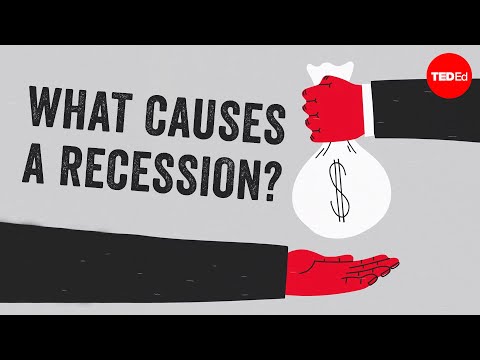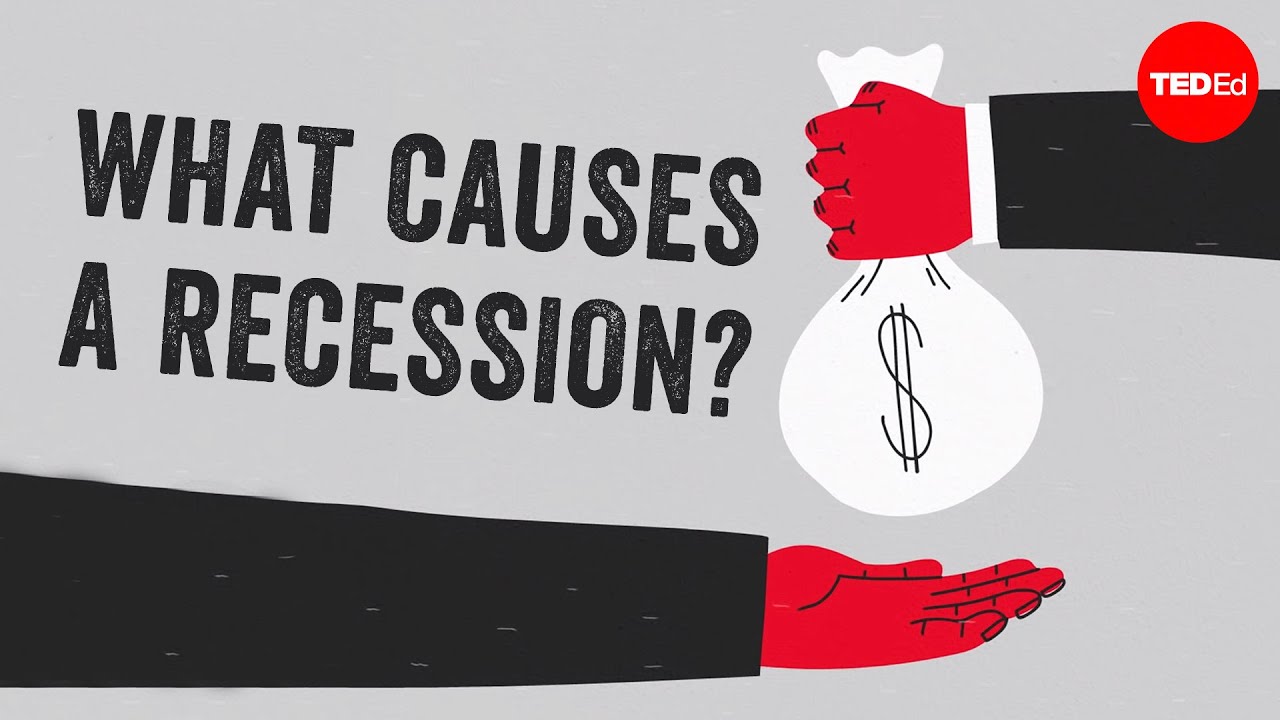If there is a recession, the global economic landscape undergoes a dramatic transformation, impacting various aspects of our lives. Businesses struggle to stay afloat, grappling with declining demand and reduced consumer spending. Unemployment rates soar as companies downsize or shut down entirely, leaving many individuals without income and struggling to make ends meet. Government budgets face immense strain as tax revenues plummet, forcing them to make tough decisions about funding essential public services and infrastructure projects. Investors face uncertainty and volatility in financial markets, with stock prices tumbling and investment opportunities shrinking. The housing market experiences a downturn, with property values declining and homeowners facing challenges in selling or refinancing their homes. Consumer confidence wanes, leading to cautious spending and a shift towards essential purchases rather than discretionary items. On the flip side, a recession can also lead to innovation and entrepreneurship as individuals seek new ways to weather the economic storm. It can prompt governments and organizations to reevaluate policies and strategies, fostering long-term resilience and growth. While a recession brings challenges, it also presents opportunities for individuals, businesses, and governments to adapt, innovate, and emerge stronger.

Impact of Recession on the Economy
| Area | Effects |
|---|---|
| Gross Domestic Product (GDP) | A recession typically leads to a decline in the GDP, indicating a contraction in economic activity. This manifests as reduced production, lower consumer spending, and decreased business investments. |
| Unemployment | Recessions often result in a surge in unemployment rates as businesses cut costs, downsize operations, or even close down altogether. Job losses can have a widespread impact on households, leading to decreased income levels and reduced consumer confidence. |
| Stock Market | During a recession, stock markets tend to experience significant declines as investors become cautious and sell off their holdings. This can lead to a decrease in individual and institutional wealth, affecting retirement savings, investments, and overall market stability. |
| Consumer Spending | Consumers tend to reduce their spending during a recession due to job uncertainty and a general sense of caution. This decline in consumer spending has a ripple effect on businesses, leading to reduced revenues, possible closures, and further job losses. |
| Government Revenue | Recessions can put pressure on government finances as tax revenues decline due to reduced economic activity. Governments may face challenges in meeting their budgetary obligations, leading to potential cuts in public services and increased deficits. |
| Interest Rates | In response to a recession, central banks often lower interest rates to stimulate borrowing and investment. However, this can also lower the incentive for saving, impacting individuals and institutions reliant on interest income. |
| Business Investments | During a recession, businesses tend to decrease their investments as they become more risk-averse. This can result in reduced innovation, slower growth, and a longer recovery period once the recession ends. |
“The Unseen Culprits Behind Economic Downturns”
The Impact of a Recession: What Happens When the Economy Slumps
In the realm of economics, a recession refers to a period of significant economic decline characterized by a contraction in business activities, widespread unemployment, and a decrease in consumer spending. This downturn disrupts the normal functioning of the economy, often leading to adverse consequences for individuals, businesses, and governments. Let’s delve into the various impacts a recession can have:
1. Unemployment Soars
When a recession hits, one of the most immediate and noticeable effects is a surge in unemployment rates. As companies struggle to sustain their operations amidst reduced demand for goods and services, they often resort to downsizing and laying off employees to cut costs. This sudden increase in joblessness can have severe repercussions on the overall well-being of individuals and families, as they grapple with financial instability and uncertainty.
Moreover, the rise in unemployment also puts pressure on government welfare systems. With more people relying on unemployment benefits and other social safety nets, governments often face increased expenditure to provide adequate support to those affected by the recession.
2. Decline in Consumer Spending
During a recession, consumer confidence takes a hit, causing a decline in consumer spending. Fearful of an uncertain future, individuals become more cautious with their finances, reducing their expenditures on non-essential items. This reduction in consumer spending directly affects businesses, leading to decreased revenues and profitability.
When businesses experience a decline in sales and revenue, they may respond by cutting costs, which could include layoffs, reduced investments, and a decrease in production. This vicious cycle between reduced consumer spending and business cutbacks can further exacerbate the recessionary conditions.
3. Stock Market Volatility
The stock market is highly sensitive to economic conditions, and a recession inevitably leads to increased volatility in stock prices. As investors anticipate reduced corporate profits and economic uncertainty, they may sell their stocks, causing prices to plummet. This can have a significant impact on individuals who have invested their savings in the stock market, potentially resulting in substantial financial losses.
Furthermore, the decline in stock prices can also affect businesses’ ability to raise capital. Companies that rely on the stock market to finance their growth may find it more challenging to secure funding during a recession. This can impede their expansion plans, ultimately slowing down economic recovery.
4. Government Revenue Decreases
Recessions often lead to a decrease in government revenue due to various factors. Firstly, with unemployment rates rising, fewer individuals are employed and, consequently, paying income taxes. Secondly, the decline in consumer spending means reduced sales tax revenue for the government. Lastly, the decrease in corporate profits leads to lower tax revenues from businesses.
As government revenues decline, governments face challenges in maintaining public services and funding essential programs. In some cases, governments may be compelled to implement austerity measures, such as reducing public spending or increasing taxes, to manage their budgets during a recession.
5. Impact on Global Economy
Recessions rarely remain confined to a single country. In today’s interconnected world, economic downturns in one nation can quickly spread to others, leading to a global recession. When major economies experience a slump, such as the 2008 financial crisis, it can have profound consequences for international trade, investment, and employment.
In a recession, countries often witness a decline in exports as demand from other nations decreases. This reduction in international trade can result in job losses within export-oriented industries, further contributing to unemployment rates. Moreover, investment flows may dry up as businesses become hesitant to invest in uncertain economic conditions, impacting economic growth in both domestic and foreign markets.
In conclusion, a recession brings about a myriad of adverse effects that permeate various aspects of the economy. From soaring unemployment rates and declining consumer spending to stock market volatility and decreased government revenue, the consequences of a recession are far-reaching. Recognizing and understanding these impacts can help individuals, businesses, and governments navigate the challenging economic landscape and work towards recovery.

